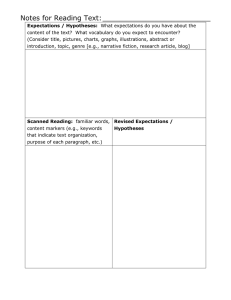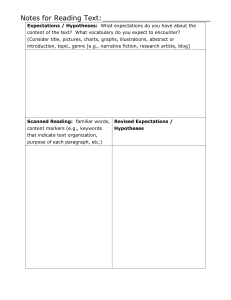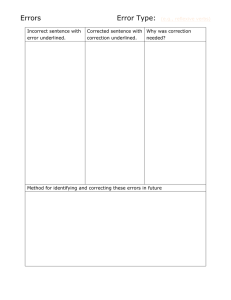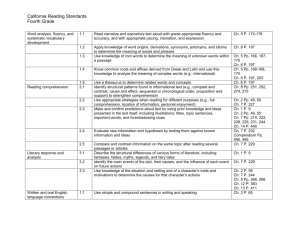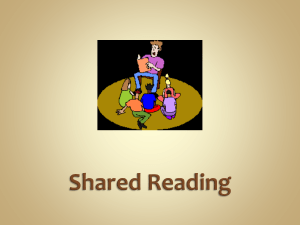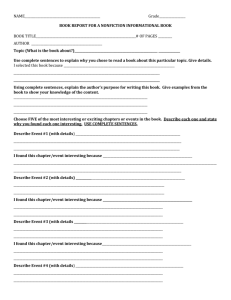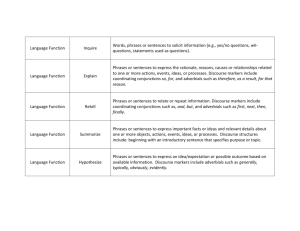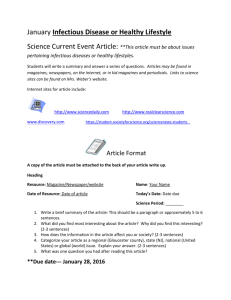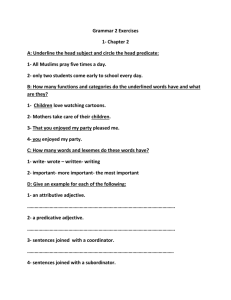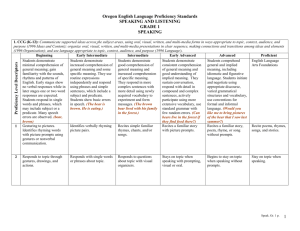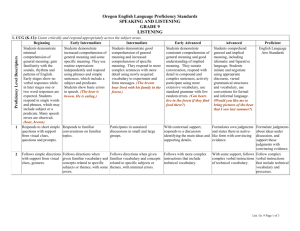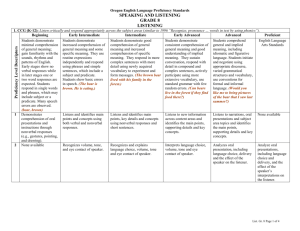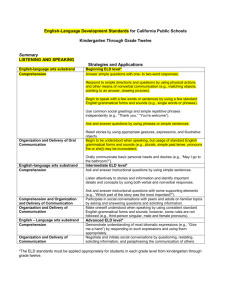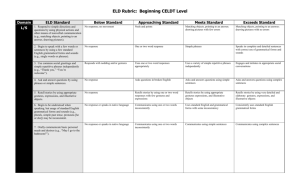Answers to questions
advertisement
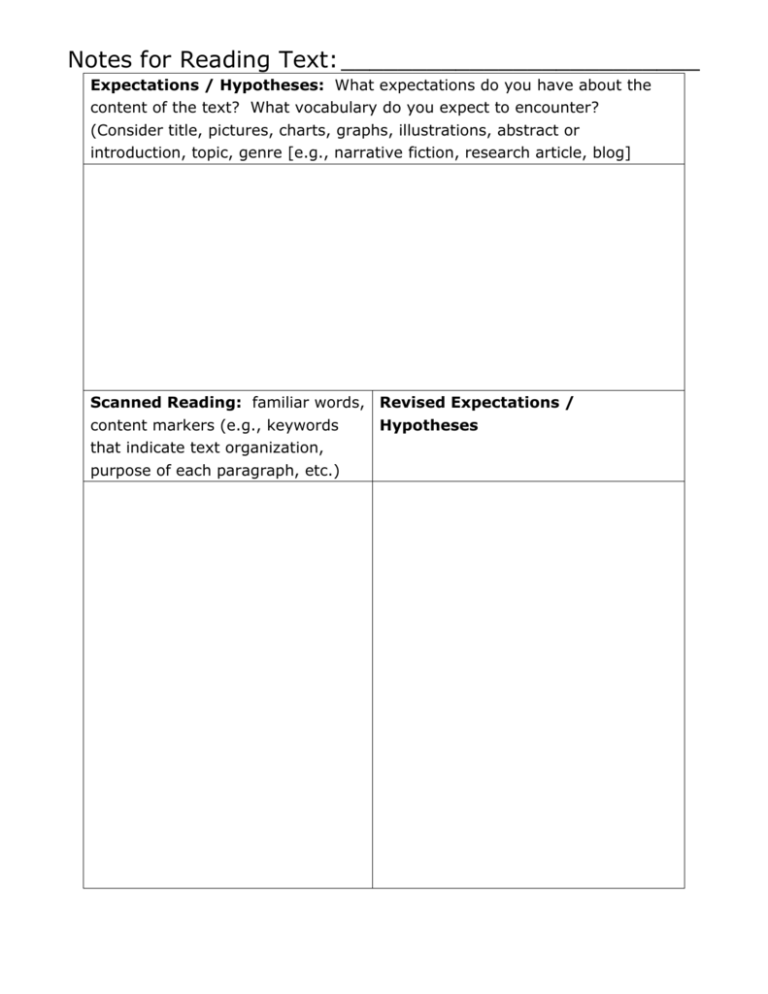
Notes for Reading Text: _________________________ Expectations / Hypotheses: What expectations do you have about the content of the text? What vocabulary do you expect to encounter? (Consider title, pictures, charts, graphs, illustrations, abstract or introduction, topic, genre [e.g., narrative fiction, research article, blog] Scanned Reading: familiar words, Revised Expectations / content markers (e.g., keywords Hypotheses that indicate text organization, purpose of each paragraph, etc.) Pre-Reading for Specific Information: what very specific information questions can you ask Answers to questions about this text? (Who, What, When, Where, Why, How) New Vocabulary (only look up what interferes with your ability to answer questions Translation Sentence Reading for Detailed Comprehension: what general comprehension / opinion questions might you ask about this text? (e.g., According to the author ...., and what evidence is there for your answer? In your opinion, is the author correct and why/why not? How does the information of this topic enforce/change your own ideas or preconceptions about this topic and why/why not?) Answers to questions New Vocabulary (only look up what interferes with your ability to Translation Sentence Literal Meaning English Meaning answer questions Unusual grammatical structures / phrases (e.g., sentences which are constructed differently than in English). Further Thoughts / Questions / Sentences or Phrases you Don't Understand Notes for Listening Text: _____________________ Expectations / Hypotheses: What expectations do you have about what you are going to hear? What vocabulary do you expect to encounter? (Consider title, pictures, abstract or introduction, topic, genre [e.g., news alert, interview, talk show, comedy skit]) Gist Listening (quickly): familiar words, names, tone of voice (attitude), images in video, etc. Revised Expectations / Hypotheses Listening for key information: what very specific information questions can you ask about this audio/video? (Who, What, When, Where, Why, How) Answers to questions New Vocabulary (write what you think Corrected Spelling (try alternate spellings you hear) until can discover) Translation Reading for Detailed Comprehension: what general comprehension / opinion questions might you ask about this text? (e.g., According to the author ...., and what evidence is there for your answer? In your opinion, is the author correct and why/why not? How does the information of this topic enforce/change your own ideas or preconceptions about this audio/video and why/why not?) Answers to questions New Vocabulary (only look up what interferes with your ability to answer questions "Corrected Spelling" English Unusual grammatical structures / phrases (e.g., sentences which Literal Meaning English Meaning are constructed differently than in English). Further Thoughts / Questions / Sentences or Phrases you Don't Understand Grammar Topic: ______________________________ Grammar Topic (be specific): Page # in textbook: When is it used? Things to be careful about (e.g., irregular forms, special exceptions, agreement, etc.) Example Sentences Visual Representation of Grammar (e.g., Charts for verb conjugations, etc.) Further Thoughts / Questions / Issues (may come from iLrn/Quia) Functions / Communicative Purpose:_______________ Communicative Purpose (be specific, e.g., Apologizing): Page # in textbook: Phrases / Key Language How do these differ culturally from English? Are they used differently? Are there rules about when they should be used? Are there formal / informal differences? Example Sentences Visual Representation of Language (e.g., Formal vs Informal) Further Thoughts / Questions / Issues (may come from iLrn/Quia) Errors Error Type: (e.g., reflexive verbs) Incorrect sentence with error underlined. Corrected sentence with Why was correction correction underlined. needed? e.g., Me lavo mis manos. e.g., Me lavo las manos. Direct objects of reflexive verbs cannot have a possessive adjective. Method for identifying and correcting these errors in future e.g., identify all reflexive verbs, and make sure that direct objects do not have a possessive adjective. If one occurs, read the sentence and replace with el/la/los/las or un/una (as appropriate). Word Choice Errors (Context) Error Correction Explanation e.g., Él jugue la guitarra. e.g., Él toca la guitarra. e.g., jugar = "to play (a game)" tocar = "to play (an instrument)" Methods to avoid word choice errors English Construction Errors Error (Sentence with error underlined) Methods to avoid errors Correction (sentence with correction underlined) Explanation / device for remembering
